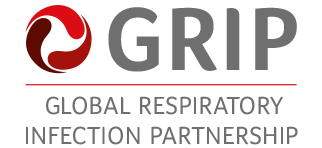Healthcare Professional Perspective
Healthcare Professional Perspective
Antibiotics and Sore Throat
From a clinician perspective, the group considered the benefits of antibiotic use in sore throat and when this treatment should be considered.
Prof. van der Velden outlined data from the Cochrane review of antibiotics in sore throat that concluded the Number Needed to Treat (NNT) to prevent sore throat at day seven is 21 (against the ideal NNT of 1)14. In short, antibiotics are of little benefit in sore throat.
Although it has been proposed that antibiotics could be used to prevent secondary complications (e.g. quinsy, glomerulonephritis, acute rheumatic fever), this appears to vary between countries. Prof. Kozlov commented that he had seen no evidence of any decrease in complication rates with antibiotic use in Russia, while Prof. van der Velden and Dr Duerden noted these complications were very rarely seen in the Netherlands and UK. However, Prof. Altiner pointed out that in Turkey the complication rates were higher, though it is not known why this is the case.
Healthcare Communication
“On the shoulder of the GP lies the responsibility of antibiotic resistance”
advised Dr Sessa. To effectively manage patient demands for antibiotics for sore throats and other upper respiratory tract infections, there is a need for improved communication skills during the physician-patient interaction.
This can help bridge the gap between what the GP believes the patient wants from a consultation and what the patient is really expecting. Prof. van der Velden pointed out: “Patient satisfaction is not primarily related to getting an antibiotic but to getting a good consultation, a physical examination and reassurance”. To do this effectively and have the patient achieve a satisfactory consultation can take different approaches.
Prof. Altiner outlined one method in Germany that showed doctors trained in patient-centred communications reduced their antibiotic prescribing by around 40%, with results lasting for over a year; in contrast, antibiotic prescribing rose in the control group of doctors with no specialist communication skills15.
Dr Duerden highlighted UK data where doctors supplemented their consultation by giving parents an information leaflet on the management of upper respiratory tract infections in children. “In practices where the leaflet was not used, 40% of children had antibiotics; where it was used, just 20% had antibiotics16”, he said.
Prof. Pignatari advocated holding general conversations with patients about their life, health and that of their family, before informing them that an antibiotic will not be prescribed. Dr Duerden said he asked patients what they thought he could do for them and what benefit they thought an antibiotic could have, before countering this belief.
The pharmacist can also play an important role in complementing and reinforcing the message the doctor gives, said Mr Bell. In addition, they can offer prevention advice, stressing the importance of immunisation and promoting personal hygiene, and evidence based recommendations for symptomatic relief. “We sell more treatments for coughs and cold than any other therapeutic category, but it is the sector where there is the least satisfaction”, he added.
With pharmacies in some countries, such as Russia, Brazil and Italy, making prescription antibiotics more readily accessible by selling illegally to patients, Mr Bell advocated the enforcement of legislation to stop this practice, citing recent successful measures in Brazil (please see Brazil Country Resistance Snapshot here).
“Even in a low prescribing country there is still potential to reduce further by addressing doctor-patient communications”
For all healthcare professionals, Prof. Altiner summed up the key communication skills required: “It is important not to be paternalistic and not to have a one-way dialogue”.
